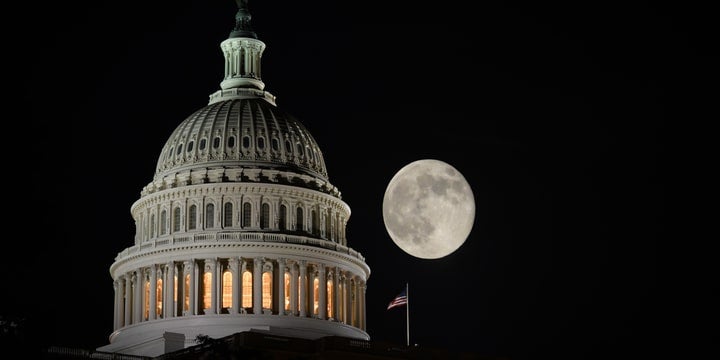Big Government Hurts the Homeless

Socialists claim the only way to lift people out of poverty is through federal government programs. In reality, big government often keeps people in poverty by preventing local groups from effectively responding to the situation on the ground.
Matt Weidinger, Resident Fellow in Poverty Studies at AEI, reports on how the federal government is preventing a Kentucky homeless shelter from serving those in need:
“The Franklin County Women and Family Shelter (FCWFS) is one of several homeless shelters in Frankfort. Opened a decade ago to address rising homelessness driven in part by opioid and meth epidemics that have devastated many parts of the state, it operates on a shoestring annual budget of $200,000 while helping very low-income women, often with serious substance use disorders, get off the streets and back on their feet. Last year, its staff — a part-time director, one full-time case manager and a two part-time workers and volunteers — provided shelter to 93 people, including 73 adults and 20 children.
To be eligible for shelter, adults are expected to work or participate in services to the degree they can. Drug treatment is generally available in the area, and the shelter maintains a zero tolerance policy for substance use. Typical stays average about ten weeks and include intensive case management to address issues causing the homelessness. This is followed by help in finding an apartment or another permanent living option. Participants are then eligible for “rental assistance, services, and support for at least eight months after a woman or family with children leaves the program.”
However, because of federal rules, one current resident of the shelter — let’s call her Rosie to protect her privacy — could well lose all hope for a good future. Rosie has spent much of her adult life using drugs on the streets. The daughter of a single mother also an addict, Rosie began using at age 15. Evicted by her sister when she refused to enable her substance use, Rosie turned to FCWFS for help. On a recent visit, Rosie had been clean for over two months (what she calls “getting away from the madness”).
But now, despite all the good work FCWFS does in helping women like Rosie, federal funding rules are working against the shelter and other similar “transitional shelter” providers. That’s because the current “Housing First” model backed by the US Department of Housing and Urban Development (HUD) prohibits shelters like FCWFS from requiring residents to participate in drug treatment, job search, or even daily chores as a condition of shelter. (In lieu of residents doing chores, HUD suggested FCWFS “hire a maid.”) Ignoring these rules means loss of federal funds, and FCWFS already has been forced to turn down $70,000 in federal grants, representing 35 percent of their annual budget.”
Big government strikes again. Instead of allowing the professionals on the ground to make decisions that best fit the situation, the federal government is dictating arbitrary requirements that go against what the shelter is trying to accomplish. President Trump has fought against this type of regulatory overreach and his administration must continue to resist the whims of career bureaucrats.